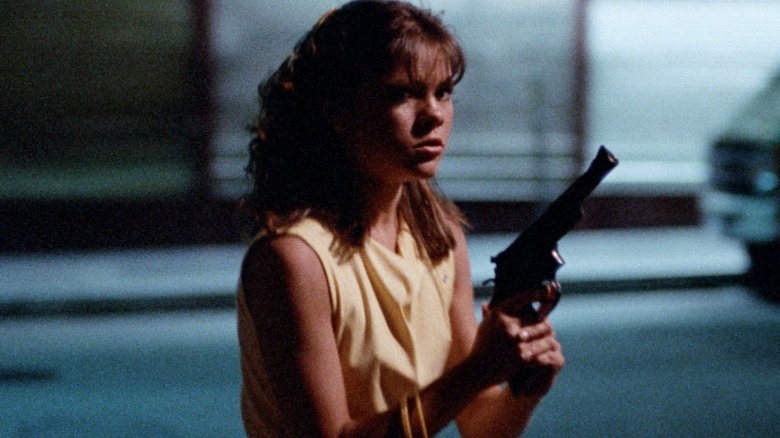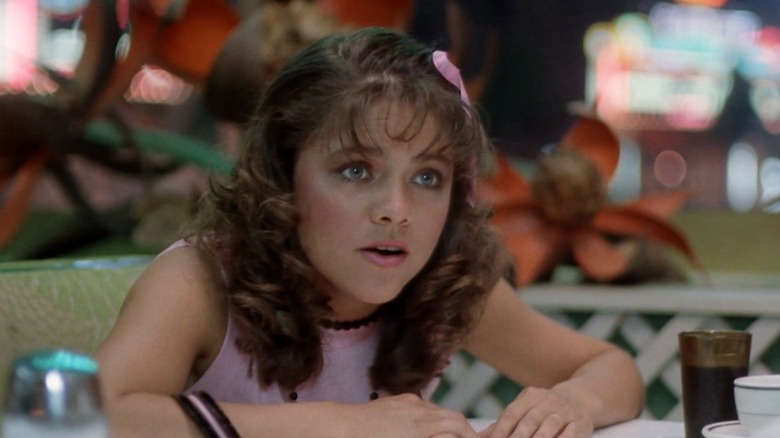Robert Vincent O'Neil, Director Of The Cult Film Angel, Dies At 91
The world of cult cinema and midnight movies has lost one of the greats today, as director Robert Vincent O'Neil has died at the age of 91. O'Neil's passing on Saturday was confirmed by his daughter Lari Bain (via The Hollywood Reporter). He is survived by his daughters, Lari, Lisa, and Nicole, his brother Ron, and sister-in-law Evie. O'Neil is also survived by his grandchildren, Jessica, Quinn, Sara, Russell, Jess, and Robert, as well as seven great-grandchildren.
O'Neil was born in Oakland on September 15, 1930, but grew up in both San Francisco and Tucson, Arizona before studying theater at the University of Texas at El Paso. After college, he worked as a television cameraman, learning the skills necessary during the very early days of TV. Before becoming a filmmaker in his own right, O'Neil served as a prop master for Richard Rush on his features "Psych-Out" and "The Savage Seven," and for Dennis Hopper on "Easy Rider."
His writing career began in the late 1960s with projects like "The Mighty Gorga," but his first feature as a writer-director was" Like Mother Like Daughter" in 1969. O'Neil became a drive-in staple, with movies like "The Psycho Lover," "Blood Mania," "Wonder Women," "The Baltimore Bullet" and "Paco." Things took a turn for the successful after O'Neil co-wrote the Hollywood cult films "Vice Squad" and "Deadly Force," the low-budget franchise of "Angel" teensploitation films (which he also directed), and the woman-led "Dirty Harry"-inspired ABC series "Lady Blue." The latter was deemed "too violent" for TV and was canceled after only 14 episodes.
It'd be easy to dismiss O'Neil's career as one of exploitation, "trash," and low-brow cinema, but O'Neil's filmography represents a world of adventurous, boundary pushing, and explicit cinema that no longer exists.
O'Neil's films were ahead of their time
O'Neil's "Angel" is arguably his most famous work, possessing the risqué tagline "High school honor student by day ... Hollywood hooker by night." Despite this titillating pitch "Angel" is a remarkably progressive and sex-positive horror thriller, showcasing a level of humanity for the full service sex workers of 1980s Hollywood that is seldom represented. "Although he shot several features on location," his daughter said, "his choice setting was always the streets of Hollywood, where a sheet of folded pink paper in his shirt pocket made it appear that he possessed a permit and where the LAPD was always happy to let him ride along." They truly don't make movies like they used to.
O'Neil's films frequently served as a love letter to the supposed "underbelly" of Los Angeles, pointing out the systemic failures that lead people to a life of crime, embracing themes of women defending themselves in a world that wishes to do them harm, and allowing queer characters to have bold, interesting storylines. While he hasn't been as prominent in film or television since the late 1990s, O'Neil was also a playwright. In spite of his old age, O'Neil was still writing and developing projects as recently as 2021. His films were frequently declared "sleazy" by the general populace, but were embraced by those who felt othered by polite society — myself included.
Robert Vincent O'Neil's legacy will live on with the cinematic beauty of burned out bulbs on Hollywood Boulevard illuminating the image of butt-kickin' women who refuse to be pushed around.

